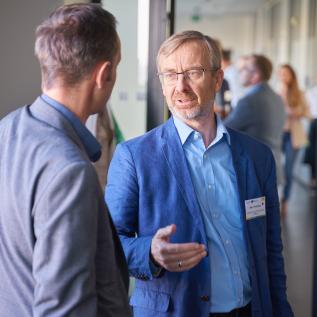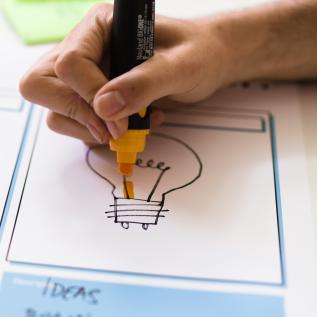Alternative tourism development in Prespa

The Policy Learning Platform conducted a face-to-face matchmaking for the Municipality of Prespes, on 21 November 2024. Local authorities requested advice on how to develop tourism, building on the concept of creative tourism. This initiative would on the one hand be connected to local crafts traditions and know-how, with the recent creation of a pottery school. On the other hand, they would like to develop economic activities in the fields of gastronomy.
Objective of the matchmaking
The Municipality of Prespes, located along the shores of Lake Prespa at the tri-border region of Greece, Macedonia, and Albania, faces challenges stemming from its peripheral location within the national context and administrative and political barriers to cross-border cooperation. These limitations contribute to inadequate infrastructure, low accessibility, and a declining population. Currently, tourism activity is minimal, with only one business offering services to visitors. A small public library serves as the focal point for cultural engagement in the community.
Despite these challenges, there is a strong ambition to develop the region’s tourism potential. Prespes hosts several unique cultural events, including a renowned annual music festival on the islet of Agios Achillios, which has been a tradition for over 40 years. In 2024, a classical music event was introduced in the ruins of a Byzantine church and received widespread acclaim. Other notable events, such as the ‘Daffodil Festival,’ ‘Flavours of Prespa,’ and the Christmas bonfires, showcase the community’s enthusiasm and commitment to creating vibrant tourist experiences. However, a structured and coherent local tourism offer remains to be developed. Ceramics and gastronomy are identified as fields that could complement nature tourism.
Participants
Beneficiary
- Sofia Zouzeli, Head of the Press & Public Relations office, Municipality of Prespes
- Marina Polymeridou, Independent consultant supporting tourism development in Prespes
Matchmaking Peers
- Anna Sàbat, Coordinator of Tourism, Craft and Trade, La Bisbal d’Empordà, Catalonia, Spain
- Zília Tovar, Officer, Economic Development Unit, Intermunicipal Community of Coimbra, Portugal
Moderators
- Erik Gløersen, Policy Learning Platform
- Mart Veliste, Policy Learning Platform
- Elena Ferrario, Policy Learning Platform
Key insights
To develop alternative tourism concepts that blend local gastronomy, creativity, strategic planning, and collaborative implementation. As an initial step, this requires identifying relevant stakeholders and fostering their motivation to actively participate in the dialogue. Additionally, it is essential for authorities to establish a clear strategy for implementing the ideas generated during this process, ensuring alignment with broader regional development goals.
To create a self-sustaining cycle of collaboration and innovation. This requires a phased strategy with clear, achievable short- and medium-term goals. The aim is to build a shared sense of accomplishment among stakeholders, demonstrating the mutual benefits of cooperation and inspiring them to expand and deepen their collaborative efforts over time.
To attract visitors seeking unique experiences that combine craftsmanship and nature. These strategies should leverage the potential of social media and specialised online platforms to effectively engage niche audiences.
And ensure that they get the support and resources they need. Experience from Cerdeira in Portugal and from La Bisbal d’Empordà in Spain shows that private initiatives can be key to tourism development that benefits the local community as a whole. Typical examples are artists that choose to locate in the area, open small galleries and organise workshops for visitors. Such resource persons can also be actively recruited and encouraged to settle in the area.
And ensure that their organisation is methodical and inclusive. These frameworks are crucial for fostering an environment where all voices are heard, maintaining momentum in dialogue, and efficiently directing financial and technical resources to relevant stakeholders. Utilising European funding opportunities can further enhance the effectiveness and sustainability of these initiatives.
With similar development challenges and ambitions. This helps reach a critical mass in the design and implementation of transformation processes. Such alliances can for example make it easier to involve participative process professionals when organising the above-mentioned multi-stakeholder co-creation workshops.
Additional sources
-
Interreg Europe policy brief on Sustainable tourism
-
Interreg Europe e-workshop on Sustainable and competitive tourism
- Interrer Europe story on Regional strategies boosting tourism through heritage

Peer review publication
Find more information on the methodology and experiences of previous beneficiaries in our publication.

Apply for a peer review
Start your peer review application process today and find solutions to your policy challenge with our expert and peers!
